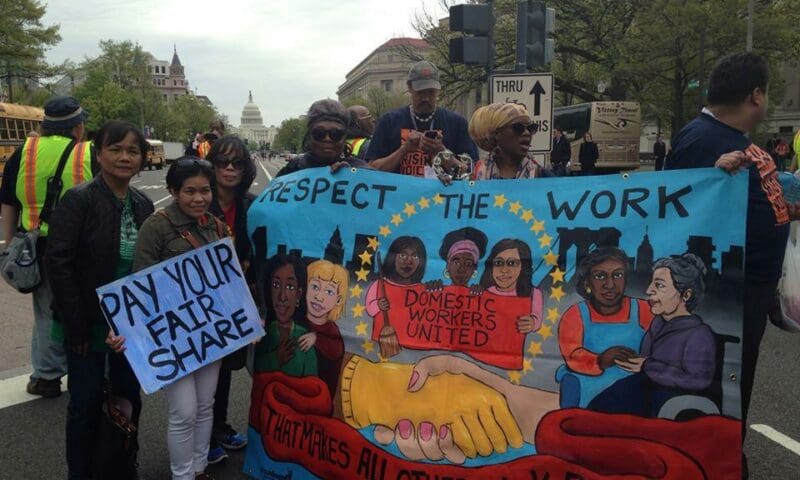


You can find us through Craigslist or fliers at the Laundromat. We live in your homes and prepare your meals. You leave beloved family members in our care. We come from around the globe, often leaving our children behind. But we’re invisible to most Americans. Who are we?
According to Ai-Jen Poo, Director of the National Domestic Workers Alliance, there are 100 million domestic workers in countries throughout the world. In the U.S. they’re key to America’s 21st century economy, caring for children, the elderly and the disabled while family members participate in the workforce. Domestic work is rapidly expanding, she explains, and doesn’t have to represent a road to permanent poverty for its mostly-female workforce.
With 44 local affiliated groups in 26 cities, the Alliance has sponsored legislation throughout the nation to adopt the Domestic Workers Bill of Rights, providing for paid leave,
» Read more about: Domestic Workers: Caring for the American Future »
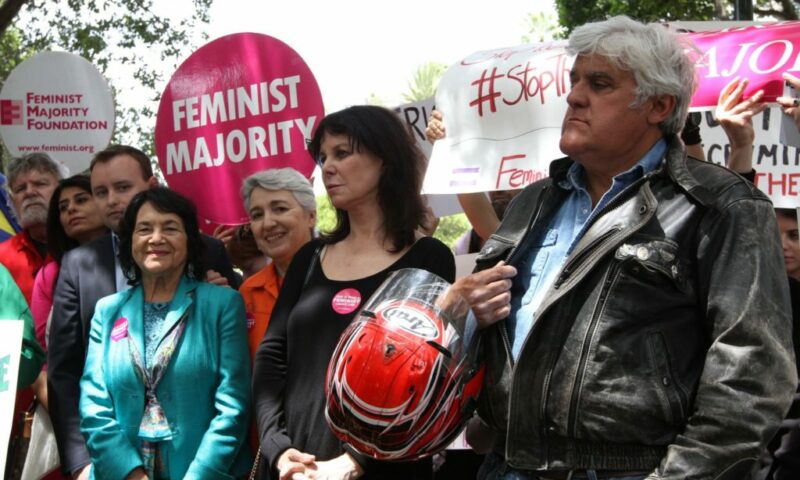

About 80 activists representing feminists, gays and lesbians, workers and Hollywood celebrities rallied in front of the iconic Beverly Hills Hotel Monday afternoon to protest the Sultan of Brunei’s introduction of a brutal version of Sharia law.
Hassanal Bolkiah, who is worth an estimated $20 billion and has been the ruler of Brunei for the last half century, owns the hotel along with the Hotel Bel-Air and other luxury properties around the globe.
The new law technically went into effect last week and will be fully phased in by 2015. It allows for the public flogging of women who have abortions, the stoning to death of gay men and lesbians, and the jailing of women who become pregnant outside of marriage. Thieves could have their right hands and left feet amputated.
Monday’s protest took place in Will Rogers Memorial Park, across Sunset Boulevard from the Beverly Hills Hotel. It was organized by the Feminist Majority Foundation (FMF) and featured former late-night talk show host Jay Leno;
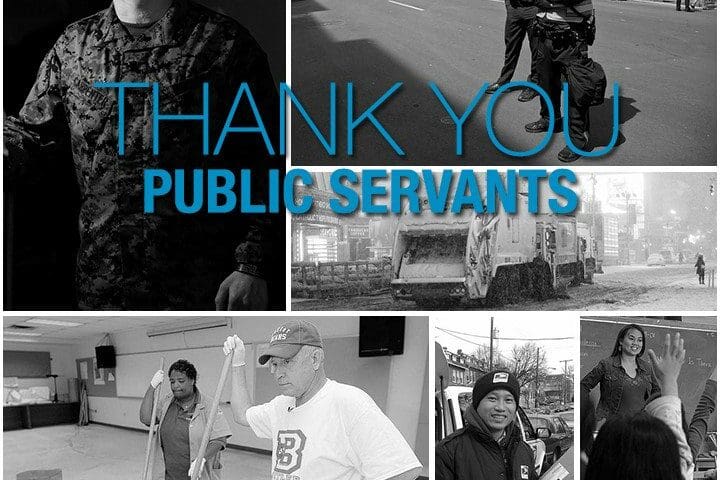
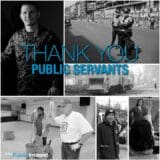

Public servants play important roles in nearly everything we do, but very often they go unnoticed. From food inspectors who keep our food safe to the sanitation workers who keep our neighborhoods clean, we depend on public servants to perform an array of services that make our lives better.
Monday kicked off the first day of Public Service Recognition Week, and we are asking that everyone take a moment to reflect on the importance of these unsung heroes and say thank you.
One easy way you can do that is to download our “Thank You Public Servants” graphic and share it on social media.
You can already find it posted on our Facebook page, and throughout the remainder of the week, we will be using our page to share inspirational stories of public servants who dedicate their lives to improving our communities and our country.
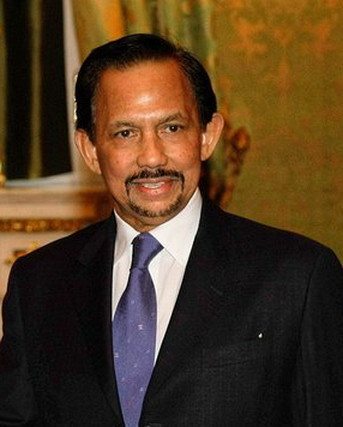

Brunei, the tiny oil-saturated kingdom tucked onto the island of Borneo, recently adopted Sharia law with some gruesome modifications, including death by stoning for homosexual acts, and sentences of flogging and amputation for such lesser “crimes” as having an abortion. The outraged response in Europe and America has been swift and its targets include the Beverly Hills Hotel, the Bel-Air Hotel and other Dorchester Collection Properties, which are owned by the Sultan of Brunei, Hassanal Bolkiah, and the Brunei Investment Agency.
The Feminist Majority Foundation has pulled its annual Global Women’s Rights Awards, co-chaired by Jay and Mavis Leno, from the Beverly Hills Hotel and has launched a massive petition drive and social media campaign calling on the government of Brunei to immediately rescind the new code and asking the United Nations to take action if these laws go into effect as planned.
“We cannot hold a human rights and women’s rights event at a hotel whose owner would institute a penal code that fundamentally violates women’s rights and human rights,”
» Read more about: Brunei’s Brutal Anti-Gay and Misogynist Laws Protested Today »


Lost documents. Incomplete and confusing information. Mysterious fees. Payments received but not applied. Homeowners waiting for a loan modification and suddenly placed in foreclosure. A nightmare of uncertainty, frustration and fear.
These incidents, described to me by numerous homeowners, mortgage counselors and defense lawyers, were supposed to be a thing of the past in California. After revelations of fraud and abuse throughout the mortgage business, including tens of billions of dollars in corporate penalties, state Attorney General Kamala Harris pushed through the 2012 California Homeowner Bill of Rights (HBOR), designed to standardize conduct by mortgage servicers – those companies that manage day-to-day operations on mortgages by collecting monthly payments and making decisions when homeowners go into default and seek help.
Yet one company allegedly committed all these HBOR violations: Ocwen, the nation’s fourth-largest mortgage servicer. According to the complaints, Ocwen (“New Co.” spelled backwards) either skirts around the edges of California law or simply ignores it,
» Read more about: Default Mode: How Ocwen Skirts California’s Mortgage Laws »


 Large corporate lobbies have, in recent years, accelerated their push to expand private charter schools. America spends nearly three quarters of a trillion dollars on public education annually and companies such as “cyber-charter” giant, K12 Inc., Rupert Murdoch’s Amplify and Rocketship, a darling of the venture capital industry, see a pot of gold.
Large corporate lobbies have, in recent years, accelerated their push to expand private charter schools. America spends nearly three quarters of a trillion dollars on public education annually and companies such as “cyber-charter” giant, K12 Inc., Rupert Murdoch’s Amplify and Rocketship, a darling of the venture capital industry, see a pot of gold.
A new report by In the Public Interest Scholar Network member Gordon Lafer, for the Economic Policy Institute, examines recent proposals by Wisconsin state legislators to privatize schools, particularly in Milwaukee, and finds that the proposals won’t help poor kids.
How? The proposals call for public schools in the largest and poorest school district to be replaced with private charter schools that substitute online apps for teachers for a significant part of the day. This “blended learning” model primarily focuses on math, literacy and test preparation, while paying minimal attention to other subjects. Also, money earmarked for Milwaukee students is diverted to fund the company’s ambitious growth plans in other cities.
» Read more about: Privatized Education’s Smoke and Mirrors »


 Cinco de Mayo is a day to lift up the Mexican culture and clink some margarita glasses in celebration. See our recipe below for that delicious cold cocktail as well as a union-made enchilada that no one will be able to refuse. Viva la fiesta!
Cinco de Mayo is a day to lift up the Mexican culture and clink some margarita glasses in celebration. See our recipe below for that delicious cold cocktail as well as a union-made enchilada that no one will be able to refuse. Viva la fiesta!
For one margarita:
1-1/2 oz. Herradura tequila
1-1/2 oz. Montezuma triple sec
1 to 1-1/4 oz. of lime juice
Salt (Morton or Diamond Crystal) for the rim of the glass
Shake all the ingredients with cracked ice in a cocktail shaker until the exterior frosts. Strain into a glass over rocks, or “up” into a cocktail glass.
Union Enchiladas
(Makes 6 servings)
1 cup Manischewitz chicken stock, or water
3 boneless, skinless chicken breasts (Foster Farms, Tyson), cut into strips
1 jar (12 oz.) Pace salsa
1 cup shredded cheddar (Horizon or Alta Dena)
1/2 cup shredded Monterey Jack (Horizon or Alta Dena)
1/2 cup chopped fresh cilantro
1 can (16 oz.) Old El Paso red enchilada sauce
1 can (16 oz.) Old El Paso green enchilada sauce
Durkee cayenne pepper (optional)
12 Mission soft corn tortillas (six inches across)
Heat oven to 425 degrees.


It’s 5:45 a.m. on Wednesday morning and it’s been a long night for Dennis Martinez and his fellow port truck drivers.
Martinez is nearing the end of a 48-hour strike against Total Transportation Services, Inc. (TTSI), the logistics company for which he has worked for two and a half years. The drivers are about to go through the toughest part of the two-day action – asking the company they have been striking against if they can return to work.
The fatigue shows on Martinez’s face. He hasn’t gotten much sleep but he expected that. He knew taking on a wealthy company wasn’t going to be easy.
A slender man dressed in a gray Aero sweatshirt, jeans and tennis shoes, Martinez is 29 but can pass for a teenager. He keeps headphones in his right ear just in case he needs a pick-me-up from Daddy Yankee and Pit Bull, two of reggaeton’s biggest artists.
» Read more about: Daring to Dream: Portrait of a Port Driver »



We’re excited to announce the creation of In The Public Interest’s ITPI Scholars Network as the next step in our growth and expanding influence on the issues of privatization and outsourcing of public services and assets across the country.
The ITPI Scholars Network brings together academics who are experts in diverse fields that relate to government privatization and outsourcing as well as responsible contracting.
Three members of the ITPI Scholars Network have recently released or are close to releasing studies that have found that careless outsourcing can harm communities, taxpayers and vulnerable residents:
• Dr. Daphne Greenwood of the University of Colorado released her new study The Decision to Contract Out: Understanding the Full Economic and Social Impacts. She found that reductions in contracted wages and benefits leads to a host of negative effects for the community at large;
» Read more about: Scholars Network to Analyze Outsourcing and Privatization »
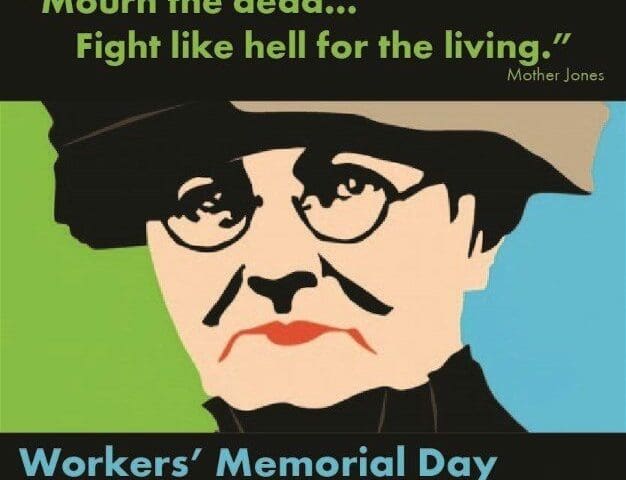
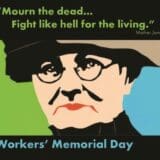

The virtual disappearance of work stoppages in America is hardly a sign of labor contentment but a reminder of how, in today’s hyper-stressed workplace, workers are afraid to protest when they believe their jobs hang in the balance. When a wildcat strike takes place, then, it’s safe to assume there must be powerful motivations behind it.
Baggage handlers working for Menzies Aviation at Los Angeles International Airport saw their 2012 walkout as a matter of life and death. At the time of their strike, three Menzies employees had been killed in California tarmac accidents, prompting workers to file complaints with Cal/OSHA about the workers’ lack of safety training and the company’s cavalier attitude towards faulty electrical equipment and the storage of fuel cylinders. The company took the bad PR and occasional fines in stride, however, and continued to conduct business as usual.
Then, this past February, a worker named Cesar Valenzuela was thrown from the luggage tug he had been driving and run over by the vehicle,
» Read more about: Mourning for the Dead, Fighting for the Living »